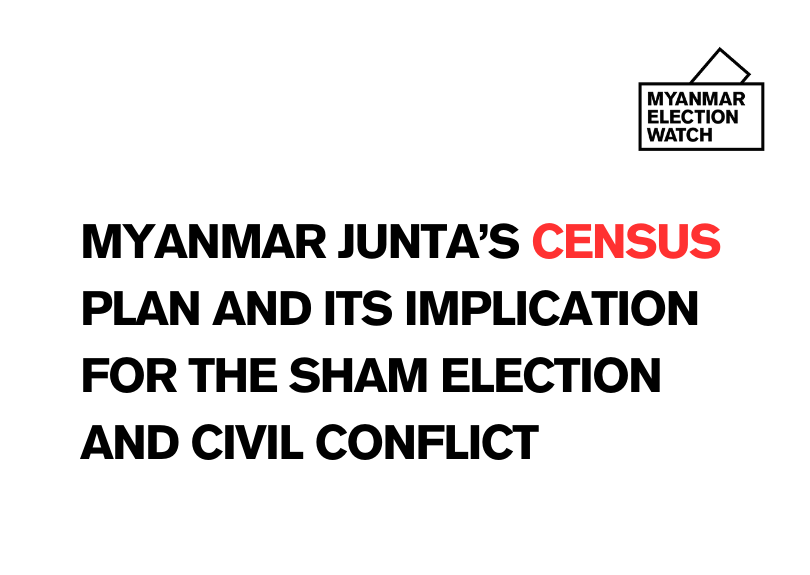Myanmar's military chief Min Aung Hlaing announced plans to conduct a national census from October 1 to 15.

Myanmar junta is set to conduct a national census in October to update voter lists and assess population and socioeconomic conditions, according to military chief Min Aung Hlaing. The census, scheduled for October 1 to 15, will cover the entire country, amidst ongoing civil unrest, where the military is facing resistance from pro-democracy forces and ethnic militias.
Min Aung Hlaing mentioned that the census data would also contribute to the accuracy of the voter lists for the "free and fair multiparty democratic election." The junta's attempt to conduct a nationwide census began in October 2023 as a pilot project in 20 townships in Kayin state, and Bago and Mandalay regions, during which the scheme collected biographic and biometric data of citizens aged 10 years and above.
There is a significant link between the junta's attempt to complete the census and its plans for an electoral exercise. What intertwining implications does the census have for the junta-planned sham election and civil conflict?
- The vague promise of a future election is the only plan the junta has. It is also the excuse for its census, an exercise in exclusion that would likely see many of those the military deems unsuitable wiped from the electoral rolls.
- The biometric data can be abused by the junta to increase surveillance and oppression against political opponents, activists, human rights defenders, journalists and people at risks.
- The census and the vague promise lean upon a false claim, that any sort of election held under current circumstances would constitute a victory. Quite the opposite – an election and the preparations for one would constitute a grave threat to what remains of Myanmar, and would likely exacerbate conflict across the country.
- Any effort to impose an election upon a reluctant population will create more violence. It will expose census and election officials to great risk of harm – these are local administrators and teachers who often have little choice but to enforce rules they do not support. It will encourage and harden divisions between the ethnic parties that do not participate and some smaller pro-junta entities that might see an opportunity.
-
The census alone constitutes a further risk of harm, and will exacerbate conflict. If the census is too risky, then an election would only lead to further widespread violence. It is not a path to reconciliation. An election would be a victory for no one.
